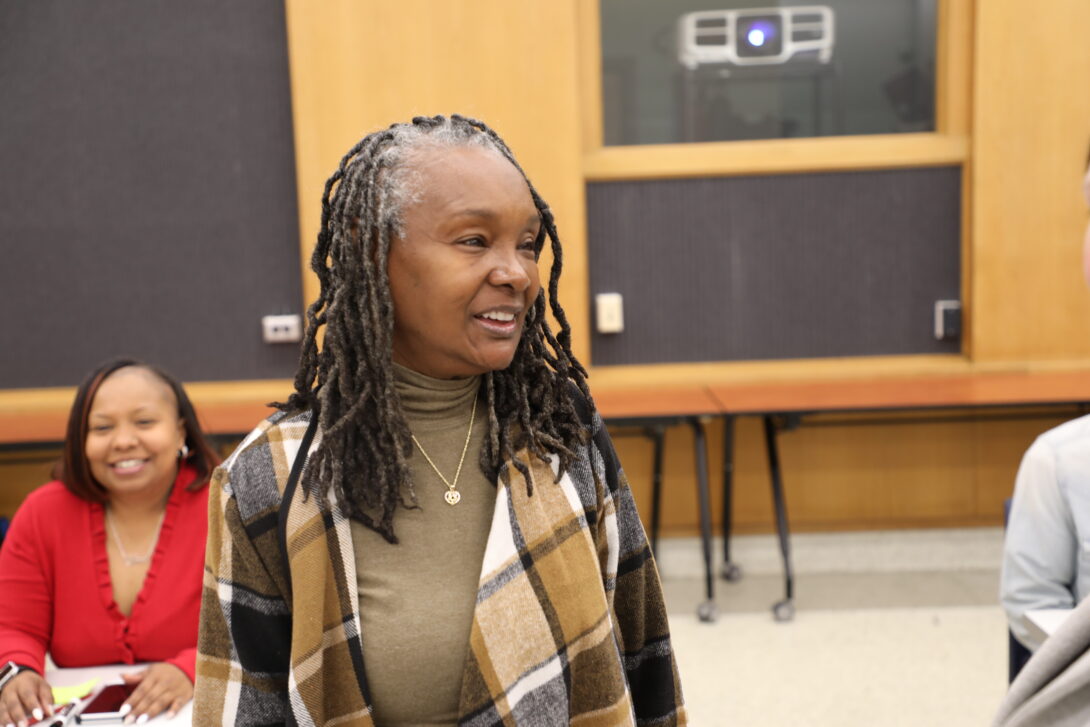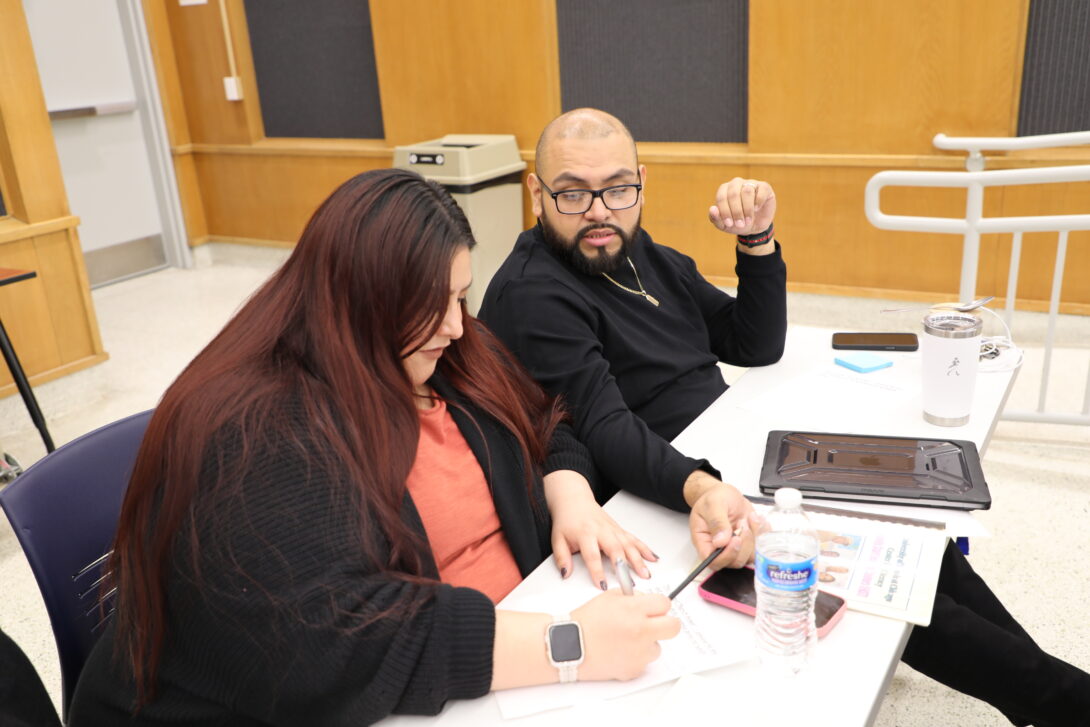UIC’s Center for Literacy supports social mobility for Chicagoans
x

As a parent looking for support almost two decades ago, Donna Hampton enrolled in a parent literacy program at the UIC Center for Literacy. The program helps parents improve their own lives so they can be better, more supportive parents.
“As a young parent, there were no programs like this,” Hampton said. “To be able to gain employability skills had a tremendous impact on me professionally and personally.”
Her journey with the center highlights how the program can significantly impact people’s lives.
Hampton said her involvement with the CFL program was life-changing, and she wants to share that with others. After her involvement with the program, she got a job with CFL as a clerk. A number of promotions later, she is now a program manager. She’s been employed with the center for 17 years.
UIC’s Center for Literacy, part of the College of Education, goes well beyond literacy programs and impacts the social mobility of Chicago families, especially those located on the South and West sides of the city. For more than 30 years, the center has supported families whose children are enrolled in Chicago’s Head Start and Early Head Start programs.
“The Center for Literacy supports parents, families, and educators to gain skills that support children’s learning and well-being,” said Andrea Vaughan, interim director of the center. “We offer services including family literacy workshops and trainings to empower parents and teach educators how to engage families in culturally and linguistically responsive ways.”
While CFL started as a basic literacy and reading program for families and their children, the center has expanded to lead a broad array of literacy programs, which support improved financial, educational and employment skills for families. Family literacy programs offer resources, workshops and support for parents to learn how to help their children develop literacy skills and to see themselves as their children’s first teacher. Financial literacy programs help families better understand how to manage their finances and secure a stable financial future, as Head Start families are at or below the poverty level. Employment programs and resources help parents navigate processes around finding a job.
x

Jesus Bernabe, a program assistant with the center’s fatherhood and parenting program, 24/7 Dads, has been in his role for 12 years. Like Hampton, his involvement with the program has impacted him greatly. He has three boys, and he has incorporated what he teaches the fathers in the program with his own kids.
Through workshops and a 12-week series, Bernabe focuses on family history with the fathers, and how their personality traits might be passed on to their children. Fathers learn about children’s growth, men’s health, coparenting, communication and more. The program currently has a waiting list for future participants as it seeks partners who want to support Chicago communities.
Bernabe has seen many dads join the program, and how it changes their lives. “I’ve had dads cry and tell me personal information that puts them out of their comfort zone,” he said. Through the work of CFL’s staff, the fathers are supported to develop their parenting skills and support their children’s development.
In addition to direct work with families, the center also provides professional development support to early learning and family support workers. Through workshops and coaching, these staff can get continuing education credits that are required by the state. Jade Jackson, a professional learning specialist with the center, works with teachers, family advocates and directors to provide ongoing professional development and technical support to Head Start staff.
“That many of our staff are former program participants speaks to the impact of the program, as well as to the power of parents learning from those who have been in their shoes,” Vaughan said. “We envision a future where all Chicago children can reach their full potential, and we believe the way to realize that future is through support for the adults in a child’s life, from parents and caregivers, to teachers and family support workers.”